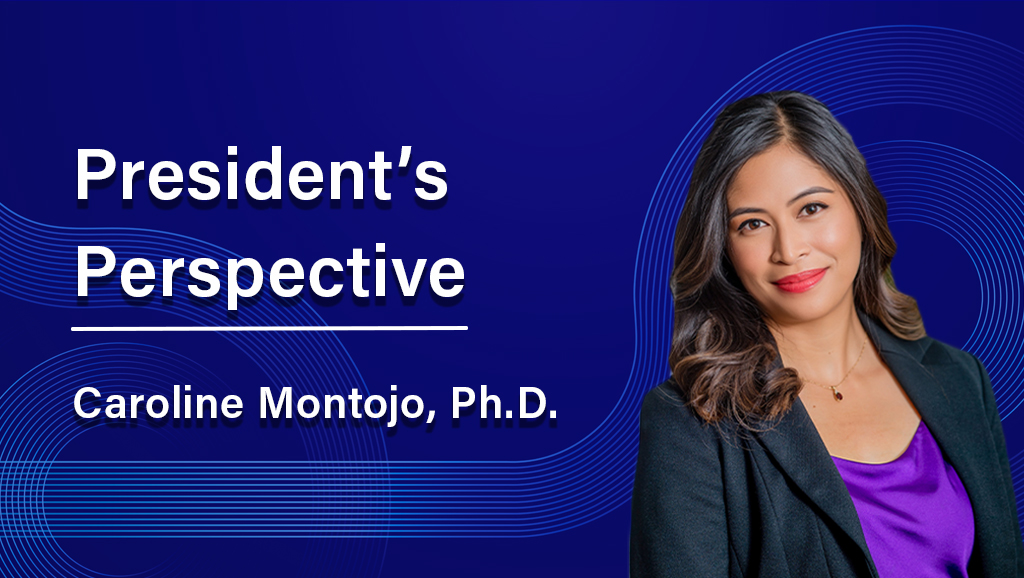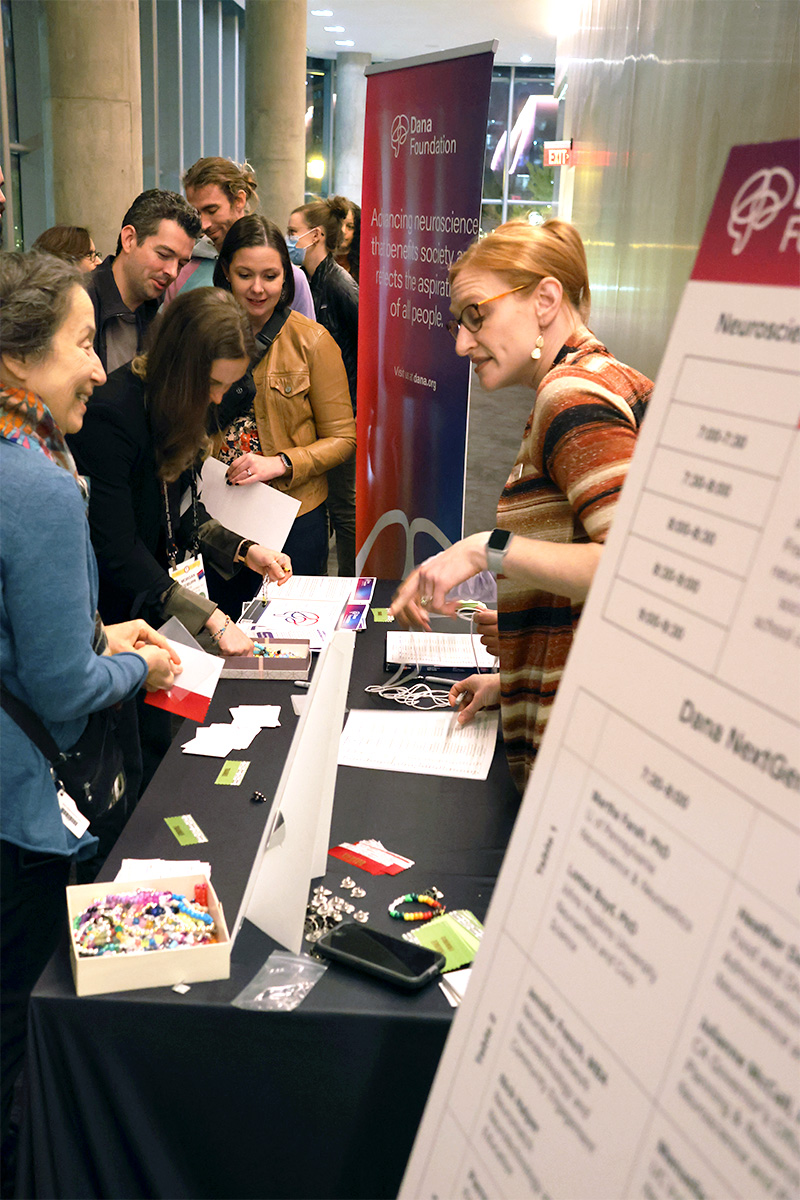President's Perspective
Reflections on Our Journey into Neuroscience & Society

The close of 2023 brings an opportunity to reflect on the Dana Foundation’s journey to strengthen neuroscience’s positive role in the world. We started this voyage about two-and-a-half years ago with the creation of our new vision, mission, and values. This year marked the Foundation’s first year of robust grantmaking on projects that advance education, training, and multi-directional public engagement on issues within the field of neuroscience and society. This is a critical and emerging field, which aims to foster meaningful connections between scholars and practitioners working in neuroscience and the people whose lives could be impacted by it—and I’m delighted to share highlights from this year’s progress.
But first, I want to acknowledge that this has also been a difficult year in many ways for the Foundation. We’ve lost several esteemed colleagues who played strong leadership roles in the organization’s history. These colleagues include Ann Korologos, Dana board director; Guy McKhann, former senior science advisor; Edward Rover, former Dana chairman and president; Herb Siegel, former Dana board director; Edward Bleier, Dana board director; and Steve Protass, Dana staff member. We honor their dedication by carrying forward on our mission, which was built on the vision and groundwork that they laid for the Foundation.
2023 Dana Neuroscience & Society Highlights:
We launched our Foundation’s new website and logo to represent our refined mission on Neuroscience & Society. There, you can find information on our programs, resources, news, grants opportunities, and the Brain Awareness Week campaign. In the new year, we’re excited to debut “NeuroSociety Stories,” which will further highlight the connection between neuroscience and society through conversations with Dana grantees, partners, and others.
We were delighted to welcome two new board directors this year, Paula Kerger, president and CEO of PBS, and Husseini Manji, co-chair of the UK Mental Health Mission. They each bring unique perspectives from different fields and organizations that enrich the interdisciplinary focus of Dana.
We launched three new open calls for proposals to invite the neuroscience and society community to share their best ideas to foster the field’s positive role in the world. One of these open calls, the Dana NextGen Professional Development Awards, invited trainees to participate in interdisciplinary enrichment opportunities that are not a component of their existing academic training.
We partnered with The Kavli Foundation on an open call for organizations to lead an artificial intelligence (AI) -neuroscience civic science project. This project will explore the ethical and societal implications accompanying developments at the intersection of neuroscience and AI, and develop methods for public engagement on these issues. It was also fantastic to collaborate with the Rita Allen Foundation on the strategy for the Civic Science Fellows program.


We supported the Dana Career Network in Neuroscience & Society, an initiative led by Francis Shen aiming to connect students, recent graduates, and mid-career individuals with resources and opportunities at the intersection of neuroscience and society. Their virtual career fair featured the stories of individuals who carved out interdisciplinary “NeuroX” career paths ranging from neuroeconomics, to neurolaw, to neuroforensics.
We hosted a Neuroscience & Society reception at the Society for Neuroscience conference, bringing together mentors and mentees who have interdisciplinary interests between neuroscience and fields such as ethics, law, humanities, social sciences, and the arts. This is part of our broader effort to build a “Neuroscience & Society” community that brings together interdisciplinary scholars and practitioners.
We supported The Franklin Institute to revise their freely accessible neuroscience and society curriculum for high school students, which aligns with Next Generation Science Standards (a set of research-based, up-to-date, K–12 science standards). The curriculum offers an in-depth focus on neuroscience through the lens of relevant societal issues, including mental health and well-being, substance use and addiction, and future brain technologies.
We reviewed the results of the Dana Centers for Neuroscience & Society planning grants and met with university leadership and staff to narrow the Dana Centers Initiative candidates. These candidates aim to establish catalytic hubs where multidisciplinary scholars gather to learn, exchange ideas, and forge collaborations. We will be announcing the grantees in early 2024, and we could not be prouder and more excited to share their visions to evolve neuroscientific training and practice to better serve society. These grants will represent the Foundation’s most significant investment to-date toward its neuroscience and society mission.
I feel deep gratitude for those we’ve had the opportunity to collaborate with during our first full year of neuroscience and society mission implementation and grantmaking.
Looking Ahead:
As we close out the year, my hope for the future is that neuroscience increasingly benefits and reflects the aspirations of people and their communities.
I believe that we all have a role to play in strengthening neuroscience’s connection to society. Research funders and other institutions could consider allocating a percentage of their funds to support education, training, and multi-directional public engagement on neuroscience and society issues. Academic societies and professional associations could host sessions that prepare neuroscientists to consider ethical and societal questions related to their work and connect them with experts from other fields who could serve as collaborators to explore these questions. Policymakers and their staff could consider creating science policy that considers the goals and values of local communities. As part of STEM curricula, K-12 educators could consider incorporating a module on brain science into all types of learning experiences. For people curious about brain health, there are opportunities to learn more about brain science and its impact on everyday life. There may also be opportunities in your local area to participate in research or share views on research priorities and aspirations for the future of neurotechnology in the world. These are just a few ways that each of us can foster neuroscience’s positive role in the world.
Many thanks for staying engaged with the Dana Foundation’s mission. I send my wishes for a warm and bright holiday season. We look forward to sharing more opportunities next year, as we seek to co-create a brighter future for all through the promise of brain science.
